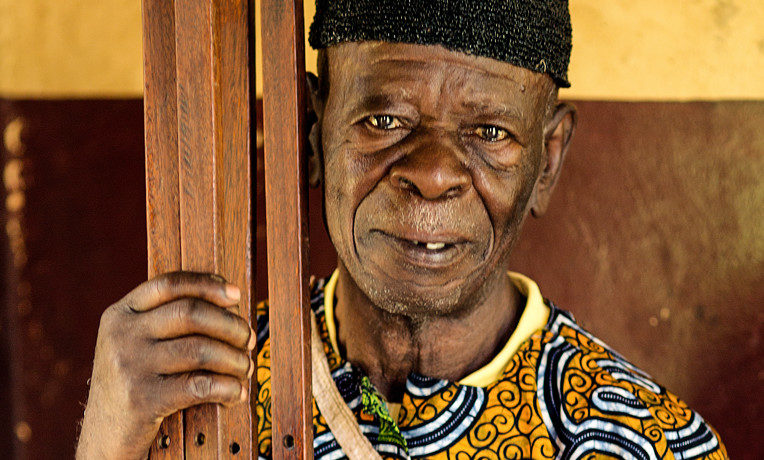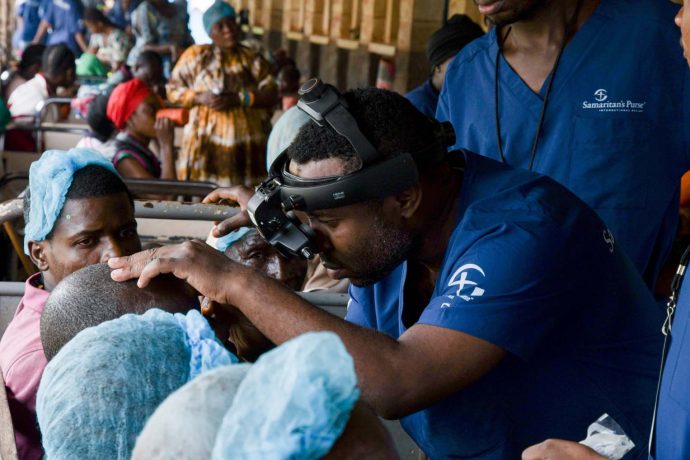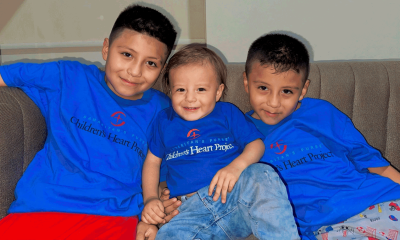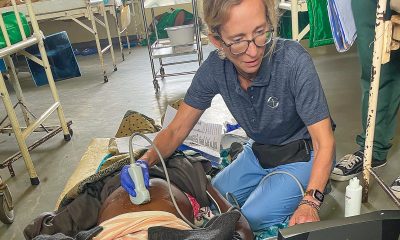Sight-restoring surgery takes a teenager from shame to hope in Democratic Republic of the Congo.
Abiakwa’s world had been growing darker for years.
Her vision had been failing in one eye since she was very young, and in recent years it had finally closed behind clouds of scar tissue.
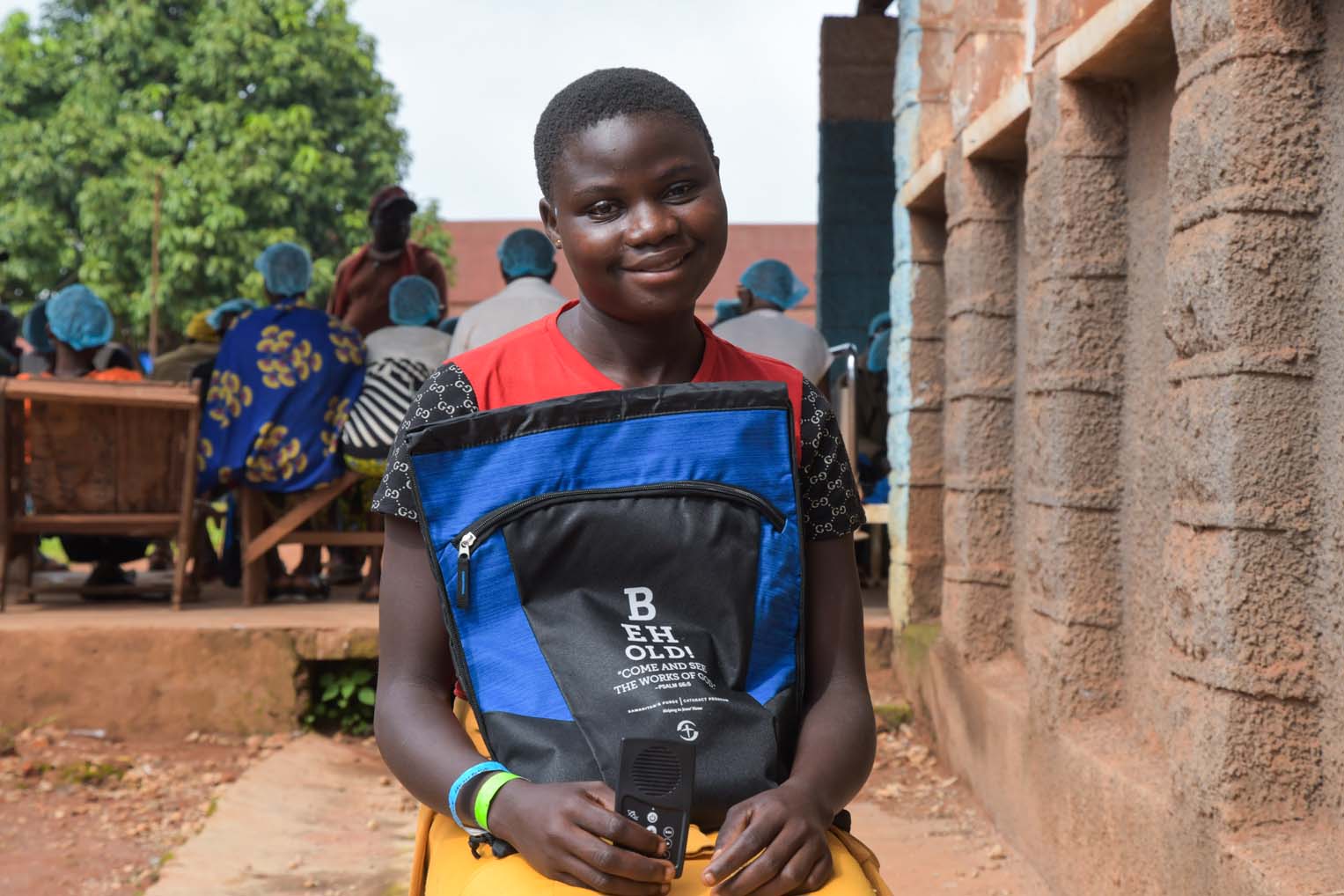
Abiakwa, 16, is excited to return home and back to school with restored sight. Cataracts were limiting her ability to study and drawing mockery from peers. She is full of gratitude and forgiveness. She holds a cherished audio Bible device that’s enabled her to enjoy God’s Word during her recovery time after cataract surgery.
Her parents had always told her it began when she fell off the unattended cassava mortar, a very large wooden cauldron that her mother used for pounding the root before cooking.
“It was my childish intelligence,” she said, scolding her younger self. “I was trying to sit on the pestle that my mother used to pound the cassava.”
It’s actually unlikely that her fall led to her condition. Cataracts of her kind in younger patients are usually congenital. Regardless of the cause, the shame at school and among peers was the same either way.
“They made fun of me too much. When I would ask ‘Who hit me?’ No one would tell me,” she said. “There was always sadness in my heart.”
She said she begged her parents and questioned them. When will you have enough money to fix my eyes?
“My dad told me not to worry,” Abiakwa said. “He said if he finds some money he will take me to get the operation.”
Over the years, anxiety faded into hopelessness. She despaired of ever seeing normally again.
Then word came that a Samaritan’s Purse surgical team was traveling to her area. They had the special skills to remove her cataract. In early August, her day came.
Healing Comes
For families like Abiakwa’s in rural Democratic Republic of the Congo such an opportunity seemed impossible—until it wasn’t.
Our cataract team, composed of doctors and nurses who often leave behind busy practices for a week or more, traveled to Isiro eager to donate their time and skill. Their shared goal was clear: helping people like Abiakwa experience a tangible expression of God’s loves through them—through the gift of restored sight.
It’s a procedure that can take just minutes yet transform a patient’s quality of life for decades.
“Our surgical team commits to this work because they want to see lives transformed—and not just physically,” said Bethany Densham, a surgical nurse and program manager who has served on 11 Samaritan’s Purse cataract missions in multiple countries around the world. “This is redemptive work. In treating loss of sight, we are partaking in the restoration of hope—with an opportunity to point them to hope in Jesus Christ.”
Abiakwa is excited and nervous, calming again when a nurse takes her hand. She takes a deep breath as she listens to the interpreter’s instructions. Then the surgeon began to work, removing the damaged areas of the eye and applying a new lens.
It was over within minutes.
The Minutes that Changed Everything
During her two days and nights in recovery, she ate good meals prepared on the hospital grounds, meeting other patients, and listening to the audio Bible we provided for each patient.
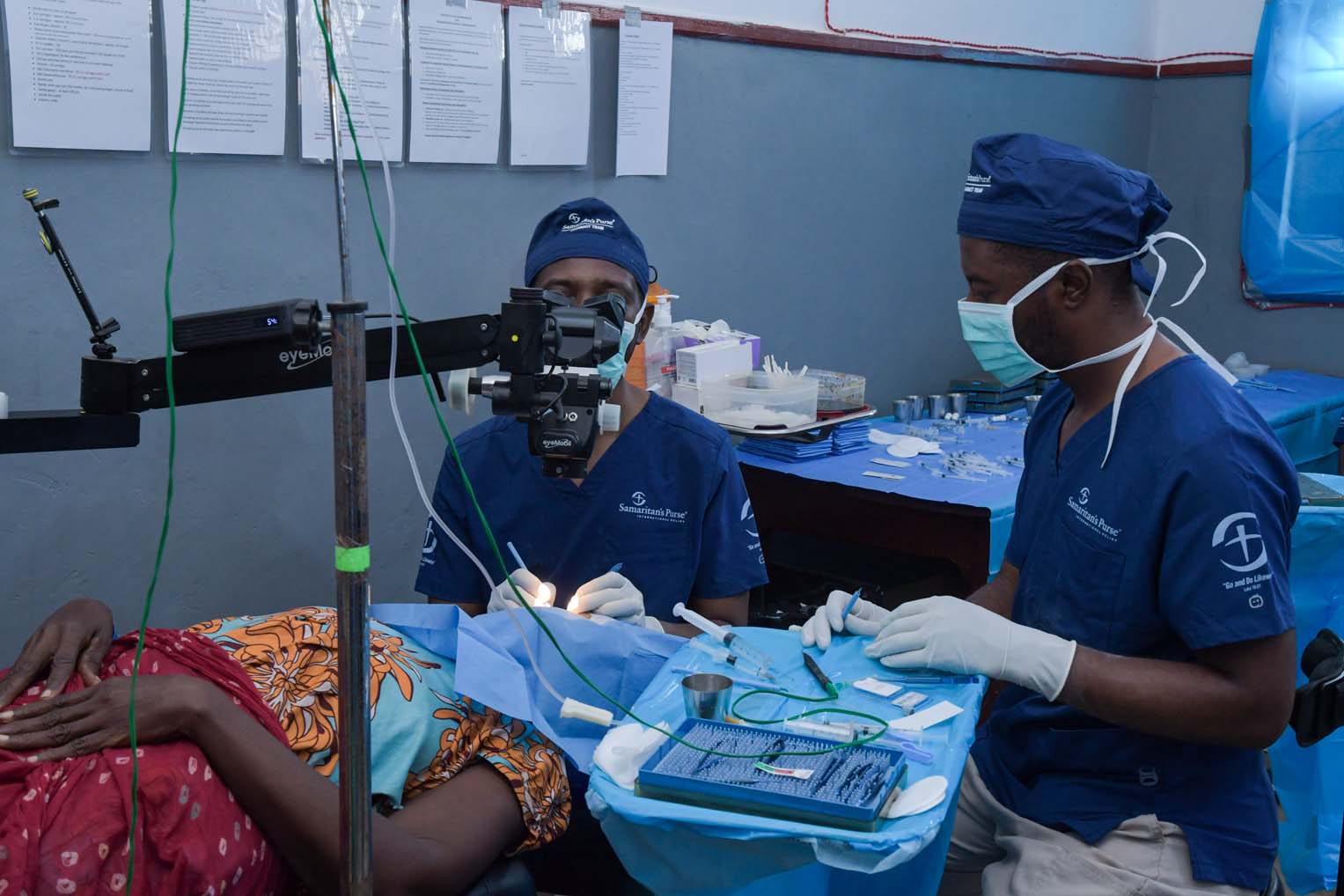
The precision procedure can be completed in minutes and give patients a new outlook on life for decades.
“Being here has already grown my faith,” she said. “They operated on us well. They gave us good food to eat. They gave everything to us freely because of God.”
Like many in the group, she was still curious about what would happen when the bandages were removed. And when the third morning came, she woke early. There was no pain. Just nervous energy.
She could already hear the chatter of the others gathered in the cool morning air. Soon she would know. Today the bandages would come off and she would know what direction her miracle had gone.
Then there were joyful gasps. For many of the patients, this was the first time their eyes would experience the shapes and the vivid colors of their region—one filled with red clay roads, green cassava fields, and the bright fabrics of the marketplace.
Soon it was Abiakwa’s turn. The bandage and gauze were slowly peeled away. The eye was examined to ensure that it had healed. It was fine, the nurse said, for her to open her eyes in the soft light under the open-air shelter.
When staff asked her how she felt, her smile grew.
“I feel good,” she said, looking around in silence. Smiling. “I feel like I am filled with joy. I thank God.”
Minutes later, the new reality had settled on her, and so did gratitude for the kindness of God-loving strangers willing to travel to her country to help her.
Abiakwa spoke with a wisdom beyond her years.
“We were short of money and God empowered them to come help us,” she said. “They welcomed us. It was as if we were just at home. We lacked money but God gave us grace. May God add days to them. May the love they showed us not be limited to this!”
Opening Her Eyes to a Heart of Forgiveness
In a few days, Abiakwa will return home. She’ll return to school. Now a seventh grader, Abiakwa shared her dreams with the staff at the Samaritan’s Purse cataract clinic in Isiro. She wants to be a nurse.
“I love to read, and I love to study,” she said. But partial sight and bullying from other kids made school an agony.
Now, the once-dying desire to study and read “came back to me with force,” she said post-surgery.
One of the first things she’s excited to dive into is God’s Word, and she’s already on her way with that after the hours she had to listen to her new audio Bible in recovery.
She’s also been thinking about what she’ll say to the students who made her “feel as if we didn’t have any value.”
“I will tell them ‘Don’t worry about me. I am fine now,'” she said. “I will forgive them. I am filled with joy now. I will tell my mockers ‘God has given me grace!'”
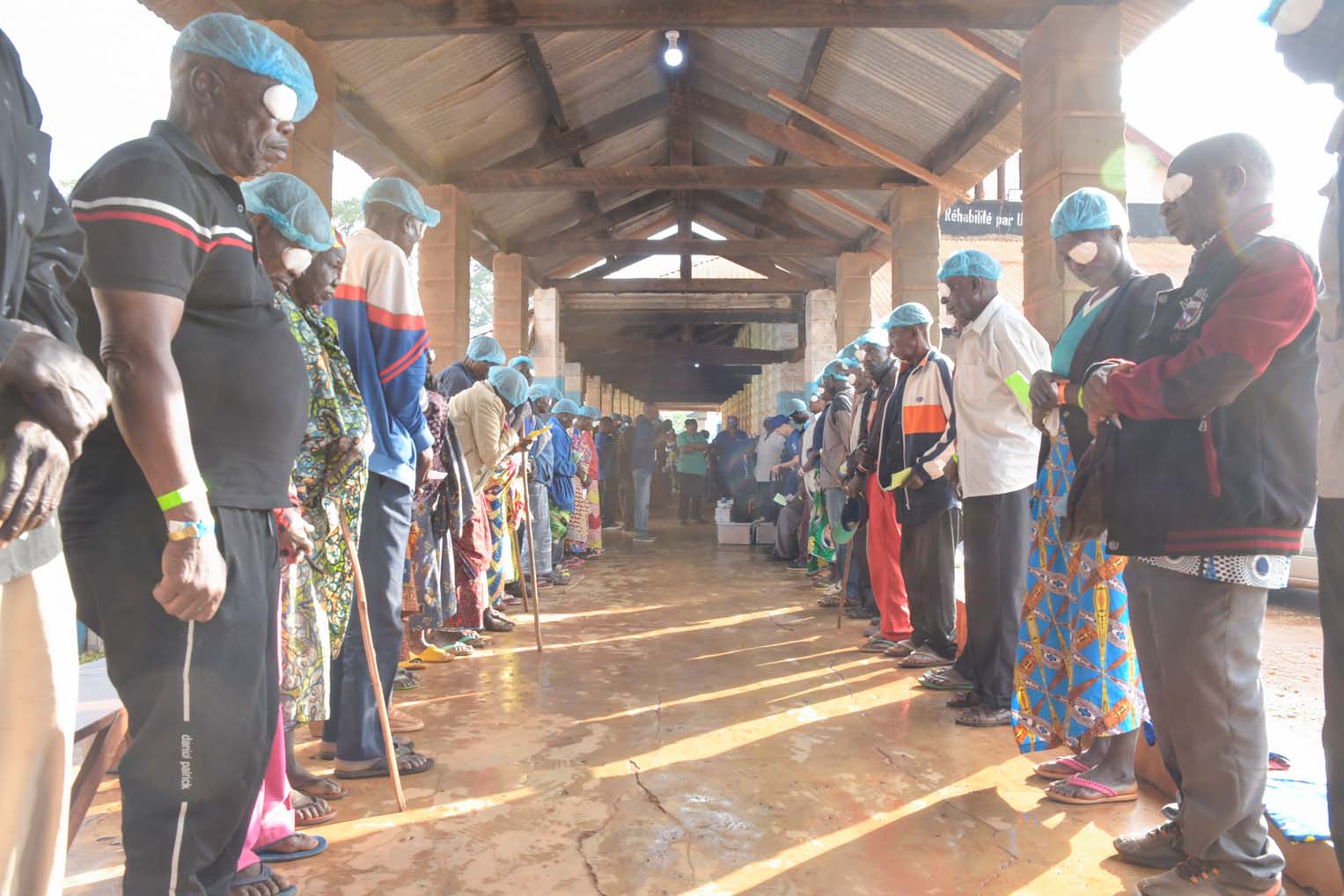
The team treated hundreds of patients during the one-week cataract mission.
